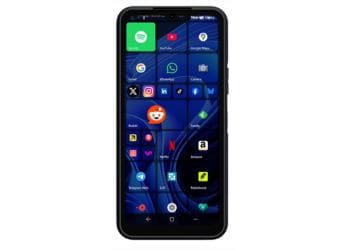- Home
- Mobiles
- Mobiles News
- Can you hear me now? Americans love and hate their cellphones
Can you hear me now? Americans love and hate their cellphones

"Mobile phone owners like the convenience and ease of connectivity, but rue that they can be interrupted more easily, have to pay the bills, and face bad connections," researchers with the Pew Internet and American Life Project found in a recent study, adding that cellphones now play a central role in nearly every aspect of their owners' lives.
While 85 percent of American adults own a cellphone of some kind, researchers found there are major drawbacks to always being just a phone call away.
"The convenience and constant connectivity that these mobile devices offer also comes with a downside in the form of annoyances, interruptions, and cost," the Pew study said.
Of the 2,254 adults surveyed for the report, Pew researchers found 24 percent said the worst thing about owning a cellphone is that they are constantly available and can be reached at any time. But only seven percent of those surveyed felt the increased distractions made it "a lot" harder to focus on a single task.
"For many cell owners, their phone is an essential utility that they check frequently, keep close by at all times, and would have trouble functioning without," the Pew study found. Sixty-seven percent of those surveyed by Pew reported checking their phones for messages, alerts, or calls even when the phone didn't ring or vibrate.
Another recently released study, published in the Journal of Behavioral Addictions, found constantly checking for messages can ruin personal relationships. Researchers there likened compulsive cellphone usage to other addictions including drugs and alcohol.
"Americans, much like the rest of the world, are spending an ever increasing amount of time with new technologies at the expense of human interaction," researchers from Baylor University and Seton Hall University found.
The study, based on a survey of 191 business students attending the two universities, found materialism and impulsiveness lie behind compulsive cellphone use and instant messaging tendencies.
"At first glance, one might have the tendency to dismiss such aberrant cellphone use as merely youthful nonsense a passing fad," study researcher James Roberts, a professor of marketing at Baylor University, said in a statement.
"But an emerging body of literature has given increasing credence to cellphone addiction and similar behavioural addictions," Roberts said.
Earlier this year, Lookout Mobile Security released a "Mobile Mindset" study that focused on mobile attachment, bad behaviour and "Nomophobia", a term used to describe the anxiety some cellphone users experience when they don't have access to mobile technology.
Of the more than 2,000 adults surveyed, 54 percent admitted to checking their phones before sleeping, after waking, or in the middle of the night.
Thirty percent admitted to checking their phones while sharing a meal with others, while 40 percent confessed they check their phones while using the bathroom.
"The data revealed the new place phones have in our values and social norms and showed that a trauma such as losing a phone can trigger strong emotional reactions," researchers with Lookout Mobile Security said.
Catch the latest from the Consumer Electronics Show on Gadgets 360, at our CES 2026 hub.
- Samsung Galaxy Unpacked 2025
- ChatGPT
- Redmi Note 14 Pro+
- iPhone 16
- Apple Vision Pro
- Oneplus 12
- OnePlus Nord CE 3 Lite 5G
- iPhone 13
- Xiaomi 14 Pro
- Oppo Find N3
- Tecno Spark Go (2023)
- Realme V30
- Best Phones Under 25000
- Samsung Galaxy S24 Series
- Cryptocurrency
- iQoo 12
- Samsung Galaxy S24 Ultra
- Giottus
- Samsung Galaxy Z Flip 5
- Apple 'Scary Fast'
- Housefull 5
- GoPro Hero 12 Black Review
- Invincible Season 2
- JioGlass
- HD Ready TV
- Laptop Under 50000
- Smartwatch Under 10000
- Latest Mobile Phones
- Compare Phones
- OPPO Reno 15 FS
- Red Magic 11 Air
- Honor Magic 8 RSR Porsche Design
- Honor Magic 8 Pro Air
- Infinix Note Edge
- Lava Blaze Duo 3
- Tecno Spark Go 3
- iQOO Z11 Turbo
- Lenovo Yoga Slim 7x (2025)
- Lenovo Yoga Slim 7a
- Lenovo Idea Tab Plus
- Realme Pad 3
- Moto Watch
- Garmin Quatix 8 Pro
- Haier H5E Series
- Acerpure Nitro Z Series 100-inch QLED TV
- Asus ROG Ally
- Nintendo Switch Lite
- Haier 1.6 Ton 5 Star Inverter Split AC (HSU19G-MZAID5BN-INV)
- Haier 1.6 Ton 5 Star Inverter Split AC (HSU19G-MZAIM5BN-INV)


![[Sponsored] Haier C90 OLED TV | Dolby Vision IQ, 144Hz OLED and Google TV in Action](https://www.gadgets360.com/static/mobile/images/spacer.png)









